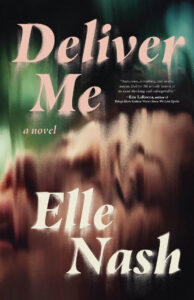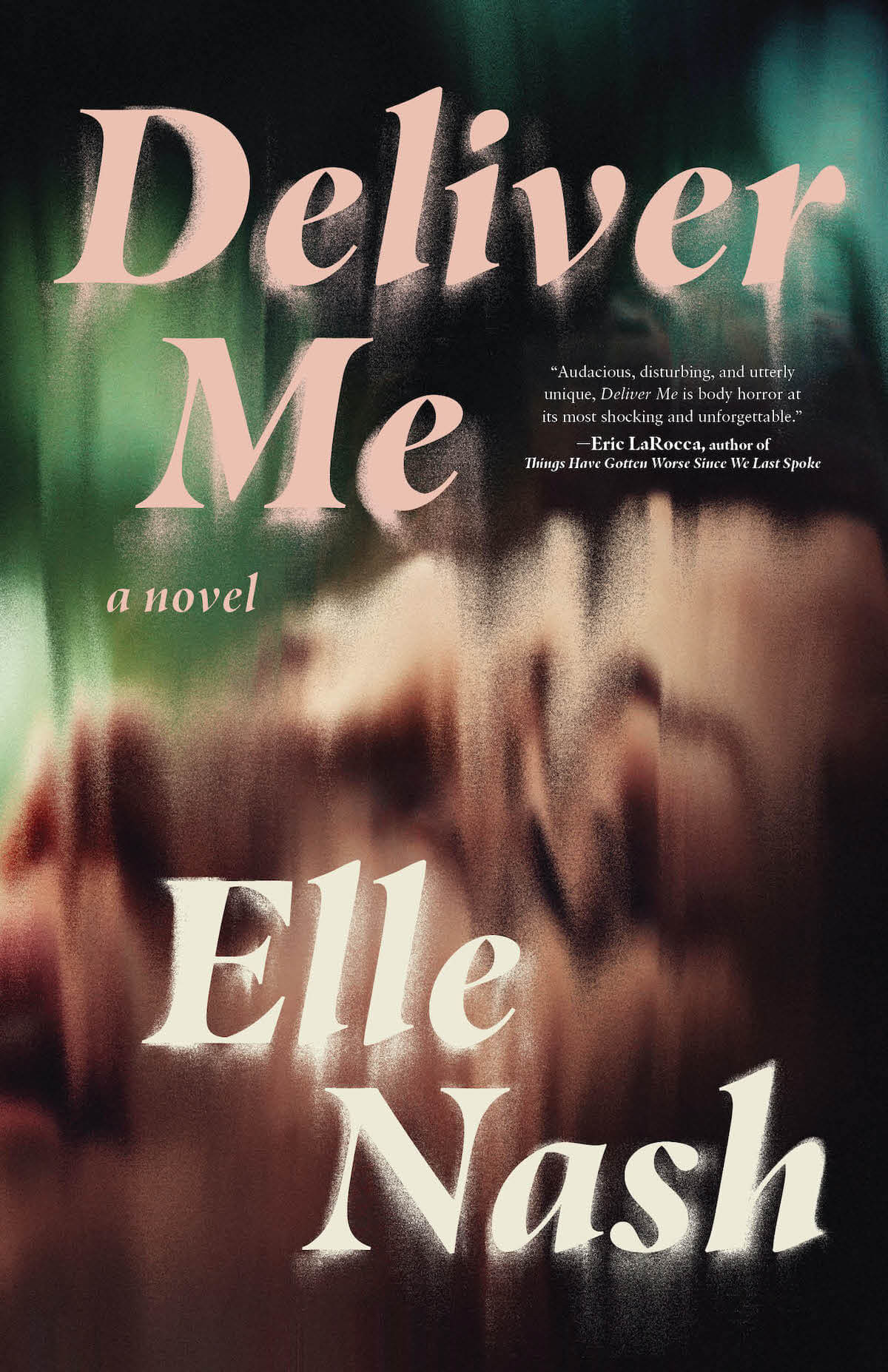What to expect when you’re NOT expecting
A review of Deliver Me by Elle Nash
A review of Deliver Me by Elle Nash
Elle Nash’s novel Deliver Me begins in the kill room of a chicken meat packing plant in the Missouri Ozarks. The first-person voice of Daisy immediately refers to the body as a fertility factory: “The factory is a fertile body, each breast a beginning.” Deliver Me follows Daisy as she struggles to prove the complex inverse of these words, that a body is meant to be a fertile factory.

Elle Nash
At the outset of the novel, Daisy has endured five miscarriages, and we quickly learn about the upcoming sixth. Understandably, she is cynical about the subject of pregnancy—“Pregnancy is a thing that happens, and we have little choice what happens, so we speak of it in passive terms: I’ve been pregnant.” She decides to eschew telling anyone about her most recent miscarriage, instigating instead a disturbing turn of events that had me cringing and fretting over how in the world she could possibly get away with keeping up the illusion of pregnancy for the rest of the book. Still, her adaptations are captivating.
Not yet past “First Trimester” (the chapter headings cleverly mimic the stages of pregnancy), Daisy makes the choice to have a baby instead of passively accepting the misery of a sixth miscarriage. Drinking two glasses of milk so that her belly distends and silently chanting, “baby, baby, baby,” she reflects: “Only then do I feel right inhabiting this walking cage; otherwise my body is merely a grotesque, useless thing. I want to chop myself to bits and be fed to the fish in the canal.” This internal monologue, with its image of walking cages, suggests she’s a slave to her own fertility, echoing the book’s opening lines.
Experiencing this novel through Daisy’s point of view can be frustrating. She is a woman who desperately desires a child, and the desperation theme weaves in and out of the narrative, gaining momentum from contradictions of self-loathing and self-deception. She repeatedly confesses to lying to people in her life, from her boss to her lover, the irritatingly named Daddy (this is also a clever call back to Nash’s first novel, All Animals Eat Each Other, in which the protagonist shamefacedly whispers “Daddy” to the male participant in her complicated and lopsided throuple relationship).
Daddy’s unique sexual fetish and emotionally abusive nature devolves into a one-dimensional monstrosity. I found the idea that Daisy would stay with this man improbable, especially as the novel reaches new levels of body horror toward the end of “Third Trimester.” The fact that a reader can find the character of Daddy detestable on so many levels, however, is a testament to Nash’s ability to build character, no matter how loathsome.
Another of Daisy’s obsessions is Sloane, a female teenage crush who moves upstairs, triggering and reinforcing Daisy’s desperation to have a baby, as though a baby is something that can be willed into  existence. Daisy’s idea of unconditional love undermines the idea of having a body that can, or cannot, produce a baby: “What a terrible grief it is to love even when you do not want to love; a hole is carved within you, and you become emptied of everything you have to give. Loving this child becomes your singular focus. You deaden against everything else.” Sloane embodies everything Daisy would like to attain, not just physical beauty, but the ability to have children. Know that Daisy’s obsession extends far beyond envy or jealousy.
existence. Daisy’s idea of unconditional love undermines the idea of having a body that can, or cannot, produce a baby: “What a terrible grief it is to love even when you do not want to love; a hole is carved within you, and you become emptied of everything you have to give. Loving this child becomes your singular focus. You deaden against everything else.” Sloane embodies everything Daisy would like to attain, not just physical beauty, but the ability to have children. Know that Daisy’s obsession extends far beyond envy or jealousy.
Daisy is more than an unreliable narrator—she’s delusional and a liar, like Patrick Bateman in Bret Easton Ellis’s American Psycho. Unreliable narrators typically try to deceive themselves and the audience alike (Agatha Christie’s Murder of Roger Ackroyd is a shining example). Daisy goes well beyond this: she strolls through her life unabashedly lying to every other character in the novel. Lying is almost as big an obsession as the imaginary baby growing inside her. Yet for all her deceptions, she still manages to capture the reader’s attention, even to generate a kind of pathos, because her deeply flawed rationalizations trick us into seeing what this unpredictable character is going to accomplish next, leading to a terrifying conclusion.
There are lots of warnings in this review. Be further warned that the novel has other subtle terrors, from Daisy falling helplessly into a pattern of abusive co-dependency with Daddy to stark descriptions of chopping up chickens. Abuse of religious authority, body horror, animal cruelty, graphic images of fetishized insect porn and competitive soon-to-be Mom classes fill these pages. Astonishingly, it all adds up to a compelling page turner worth every second of white-knuckling through the book.
Nash grew up in Colorado Springs. Her first novel, All Animals Eat Each Other, is set in Colorado Springs to great effect, inhabited by an obsessive woman who could provide a prequel to Daisy’s origin story. Nash is the founding editor of Witch Craft Magazine. Her other books include Nudes, a collection of short stories, and Gag Reflex, a novella about an eating disorder. She currently lives in Glasgow, Scotland.
Kurt Bunch has a MFA in creative writing from Regis University in Denver, Colorado. He received a BFA in Film & Media Studies from University of Florida. He is eternally searching for what he wants to be when he grows up. He splits his time between Colorado Springs and the Pacific Northwest while enjoying family life, travel, sailing, crabbing, reading and napping, in between compulsive fits of writing novels and screenplays.
Click here for more from Kurt Bunch.

